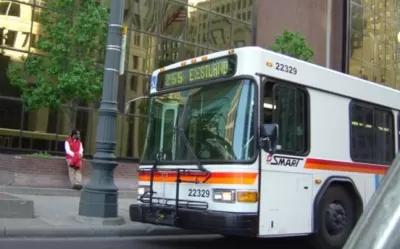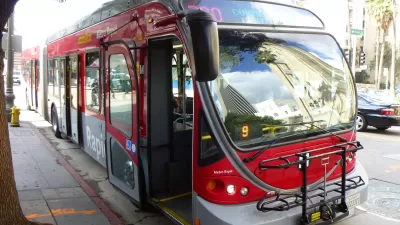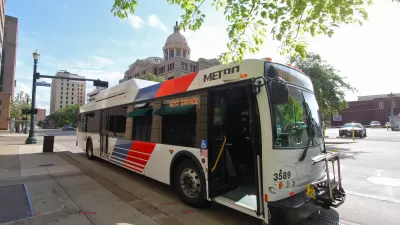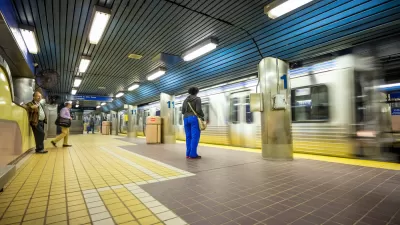Transit advocates worry that the movement to eliminate fares will come at a high cost to transit-dependent riders who rely on frequent, reliable service to reach jobs and services.

While many transit agencies are considering reducing or eliminating fares to boost ridership, some policymakers worry that the lost revenue will have a negative impact on transit service and the people who rely on it, writes Luz Lazo in The Washington Post.
Local transportation and political leaders say that while the pandemic has harmed transit, it also highlighted its critical role for 'essential' workers. Many kept riding to get to jobs at grocery stores, restaurants and hospitals as workers with more flexibility stayed home. Bus ridership has fared better than rail ridership during the pandemic, in large part because of service workers.
With fare revenue sometimes covering as much as a quarter of transit operations, agencies that eliminate fares must rely more heavily on other local, state, and federal funding sources. In the Washington D.C. region, Lazo writes, "loss of fare revenue would translate to nearly $170 million that jurisdictions would need to find from federal, state or local sources."
Lazo details the fare reduction proposals of various D.C.-area agencies, but cites surveys showing that frequency and convenient routes play a more important role in whether people choose to use transit than cost. Reduced fares can encourage more people to use public transportation, but only if it takes them where they need to go. Meanwhile, riders who rely on it worry that reduced service will make it even more difficult to get around.
The concept of fare-free transit picked up steam during the pandemic as transit agencies sought ways to bring riders back. Advocates say eliminating fares is an important step toward transit equity. And, to be clear, the structural deficits of transit operations still threaten the future of public transit.
FULL STORY: Bus systems are eyeing lower fares, leaving passengers and advocates to wonder at what cost

Trump Administration Could Effectively End Housing Voucher Program
Federal officials are eyeing major cuts to the Section 8 program that helps millions of low-income households pay rent.

Planetizen Federal Action Tracker
A weekly monitor of how Trump’s orders and actions are impacting planners and planning in America.

Ken Jennings Launches Transit Web Series
The Jeopardy champ wants you to ride public transit.

Washington Legislature Passes Rent Increase Cap
A bill that caps rent increases at 7 percent plus inflation is headed to the governor’s desk.

From Planning to Action: How LA County Is Rethinking Climate Resilience
Chief Sustainability Officer Rita Kampalath outlines the County’s shift from planning to implementation in its climate resilience efforts, emphasizing cross-departmental coordination, updated recovery strategies, and the need for flexible funding.

New Mexico Aging Department Commits to Helping Seniors Age ‘In Place’ and ‘Autonomously’ in New Draft Plan
As New Mexico’s population of seniors continues to grow, the state’s aging department is proposing expanded initiatives to help seniors maintain their autonomy while also supporting family caregivers.
Urban Design for Planners 1: Software Tools
This six-course series explores essential urban design concepts using open source software and equips planners with the tools they need to participate fully in the urban design process.
Planning for Universal Design
Learn the tools for implementing Universal Design in planning regulations.
Heyer Gruel & Associates PA
Ada County Highway District
Institute for Housing and Urban Development Studies (IHS)
City of Grandview
Harvard GSD Executive Education
Toledo-Lucas County Plan Commissions
Salt Lake City
NYU Wagner Graduate School of Public Service





























